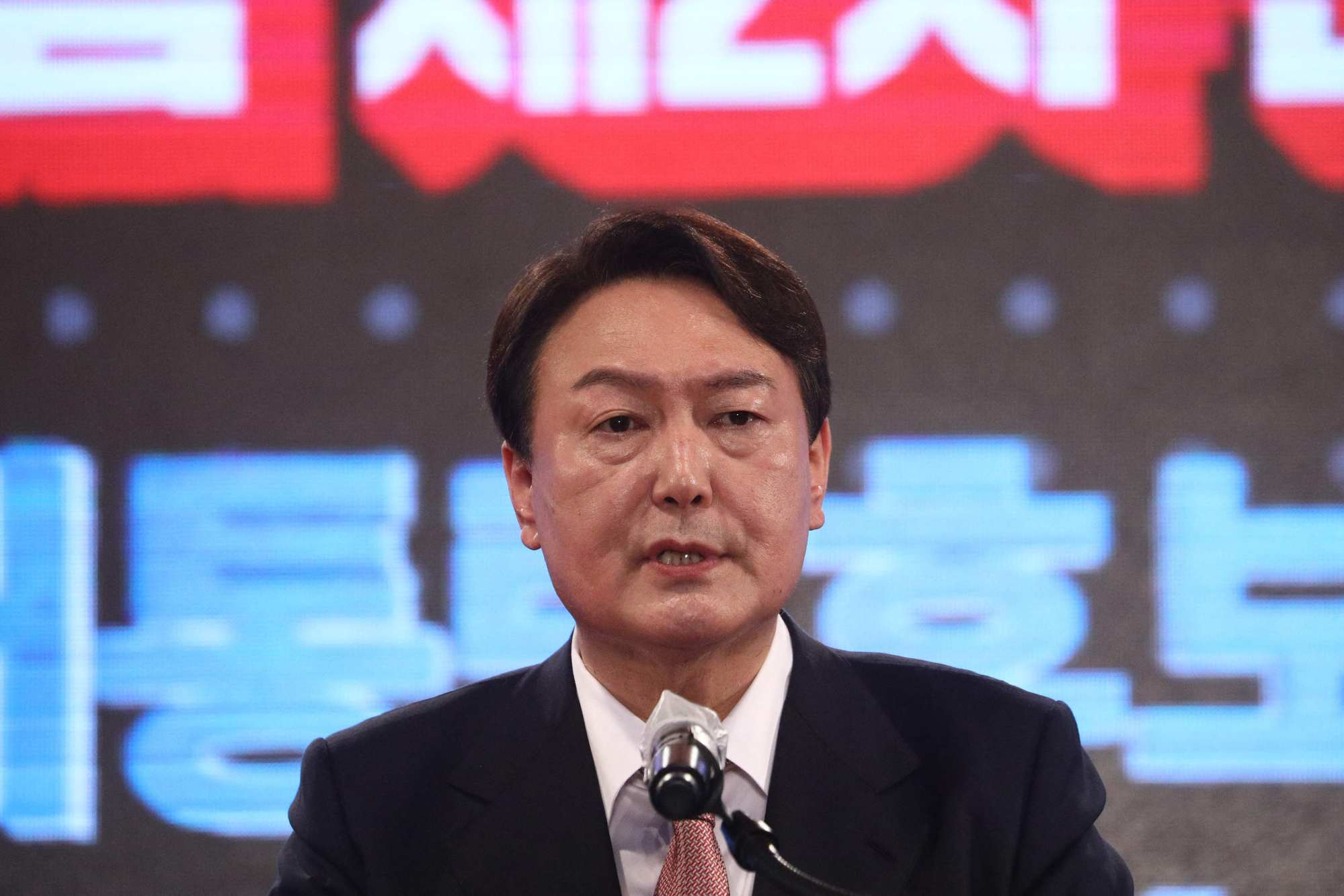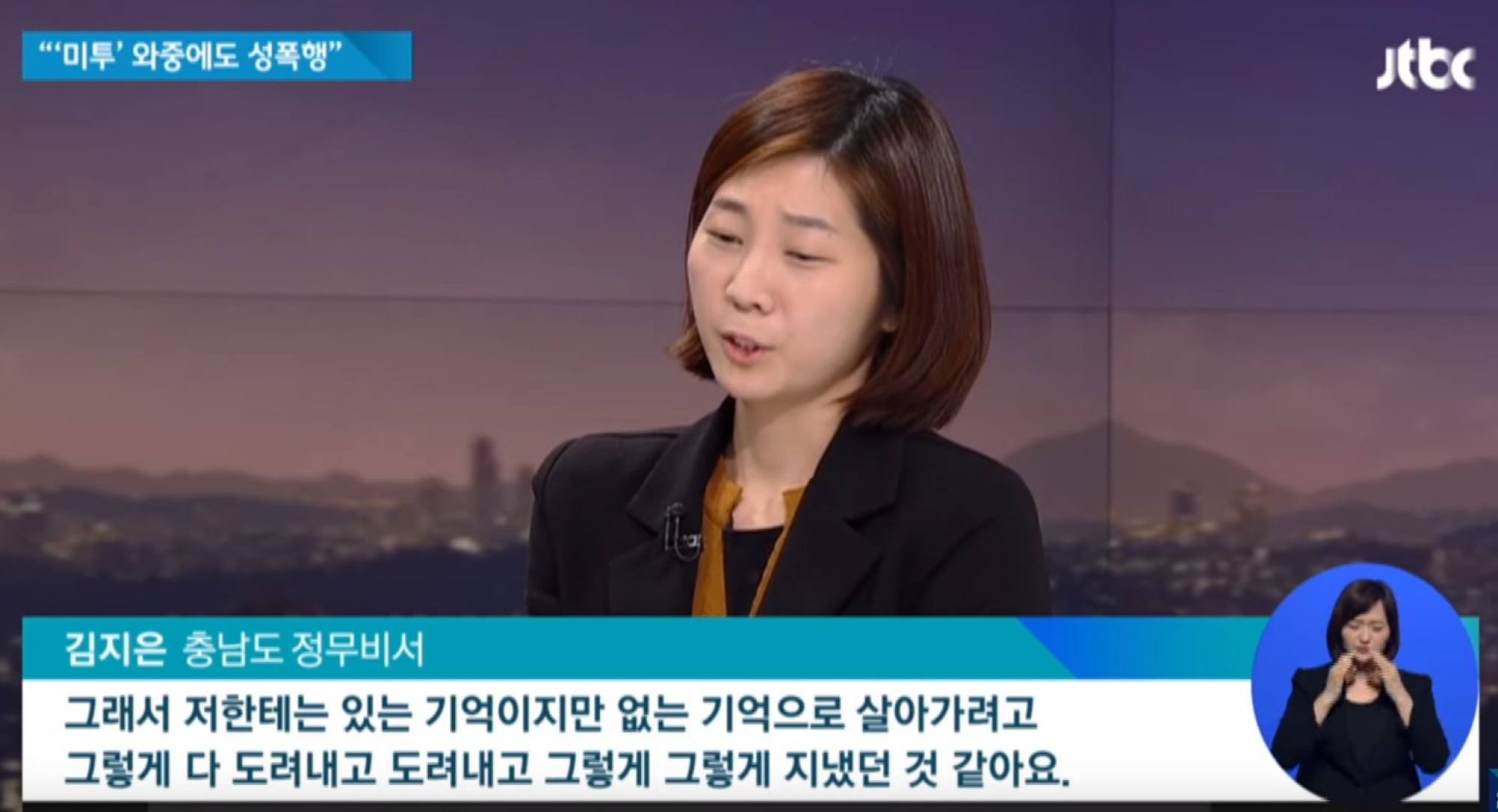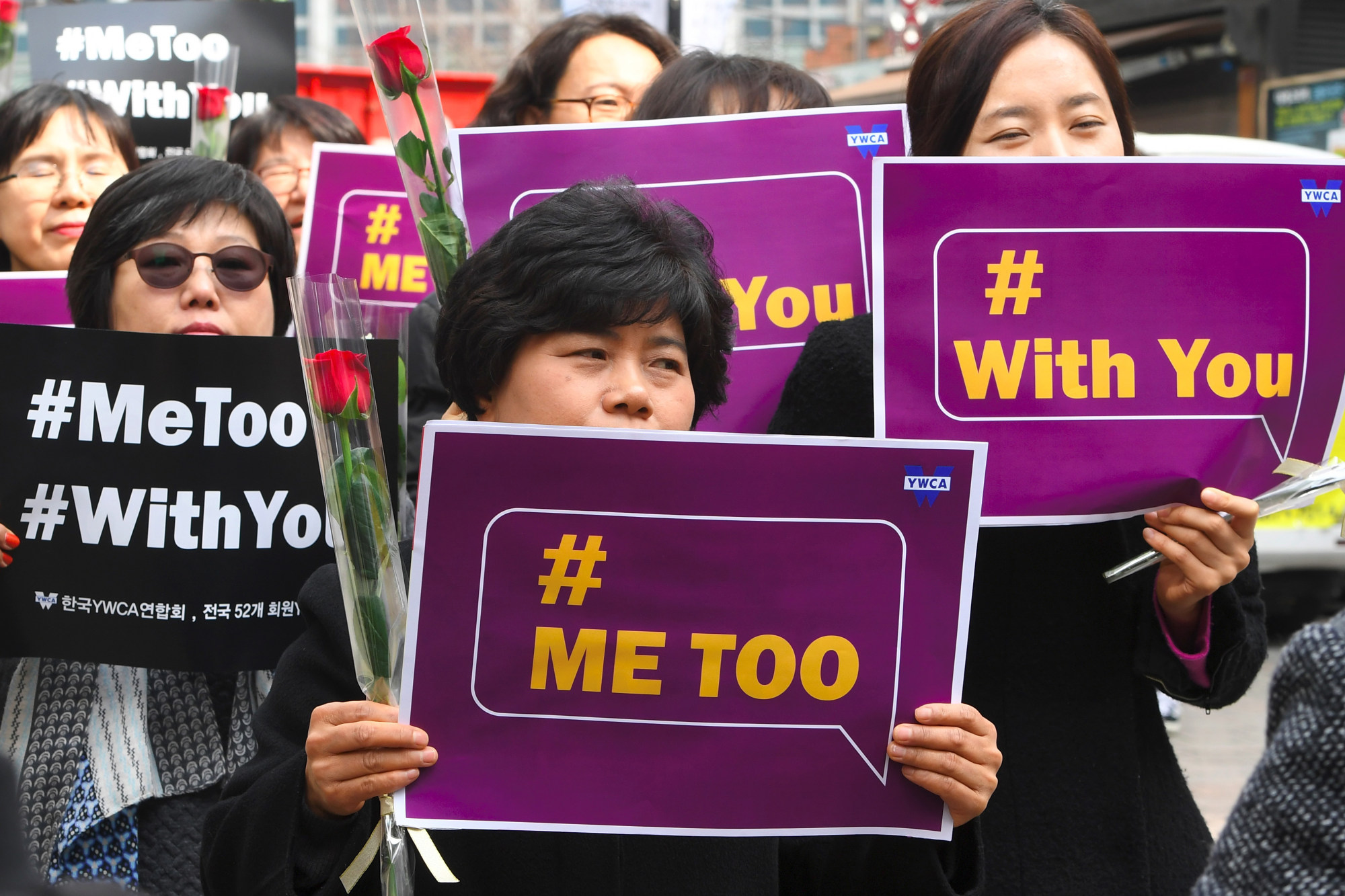
‘MeToo moments occur when men don’t pay’: South Korean presidential candidate Yoon Suk-yeol’s wife sparks outrage with YouTube comments
- Kim Keon-hee’s comments – meant to highlight scandals dogging the ruling Democratic Party – backfire as she claims ‘conservatives make sure they pay’
- She later apologises for ‘inappropriate remarks’, but the episode highlights how gender-based conflict, on the rise in South Korea, has coloured the election
The wife of South Korean presidential hopeful Yoon Suk-yeol has sparked outrage for saying that #MeToo scandals occur because the women involved were not “paid” by men.
Kim Keon-hee, 49, made the remarks to a reporter from Voice of Seoul, a YouTube news channel with liberal leanings that is supportive of the ruling Democratic Party. Yoon is a member of the opposition People Power Party.
This came about after a court allowed the recording to be played on air, albeit with parts redacted, after dismissing a request from the People Power Party to stop it hitting the airwaves.
“MeToo incidents occur because they [men] don’t pay, surely. They wanna play around but have no money. I understand them,” Kim said.
She was referring to how the prominent politicians from the ruling liberal Democratic Party had been mired in a series of sex scandals in recent years.

Kim was heard saying that unlike liberal politicians “conservatives make sure they pay”.
“They don’t use people free of charge,” she said, adding that she felt sorry for ex-governor Ahn and that she and Yoon were on “Ahn Hee-jung’s side”.
[Conservatives] don’t use people free of charge
“Conservatives should pay to do it,” she added, going on to say that conservatives should not follow in the footsteps of liberals in failing to pay the women involved, as they never knew when incidents would come back to haunt them.
Kim Ji-eun, the woman victimised by Ahn Hee-jung, called for a sincere apology from Kim Keon-hee, accusing her of making a total “mockery” of the #MeToo movement in South Korea.

Kim Keon-hee, who sent in a written response to MBC’s request for comment, apologised to the public for “inappropriate remarks” she made “in the process of criticising certain liberal figures involved in sexual exploitation”.
During the phone conversations with the journalist, Kim also denied allegations that she was mingling with fortune-tellers and consulting them for Yoon’s political future.
The Segye Ilbo daily on Monday reported a renowned fortune-teller was serving as a key adviser at Yoon’s electioneering headquarters, a claim immediately denied by the election camp as groundless.
Kim’s remarks are likely to deal a blow to Yoon whose support rate plunged amid a series of controversial missteps before regaining lost ground this month against Lee Jae-myung, the Democratic Party candidate. Yoon is currently leading Lee by 40.6 per cent to 36.7 per cent, a survey by Realmeter found on Monday.
South Korean women face hate attacks as an antifeminist movement grows
Kim publicly apologised in December for embellishing previous job applications to make her sound more qualified than she actually was.
Young Korean males have become increasingly vocal with their frustrations at rising home prices and the lack of good jobs, believing that they are losing out to women who can continue with their studies uninterrupted while men have to serve obligatory conscription of up to 21 months. A poll last May by the Hankook Ilbo daily, found that among South Korean men in their 20s, nearly 79 per cent said they were victims of serious gender discrimination, while 84 per cent of women in their 20s said they were discriminated against due to their sex.

Men have protested against gender quotas in the workplace instituted to improve South Korea’s record on women’s rights and launched cyberbullying campaigns against women, including one last July that targeted 20-year-old Olympic archer An San, who has short hair, for “looking like a feminist”.
This has come about after a rise in young women speaking up on issues such as the gender pay gap and organising mass protests against spy-camera scandals in 2018 amid a global #MeToo movement.
How a masturbating monk drove Seoul to say ‘Me Too’
Lee Jung-ah, of the Gyeonggi Women’s Associations United, said it was apparent that some politicians were seeking to tap public anger and “channel it into the ballot boxes”.
“But I wonder whether this tactic would work as they seem to forget the fact that half of the population in this country are women,” she added.

